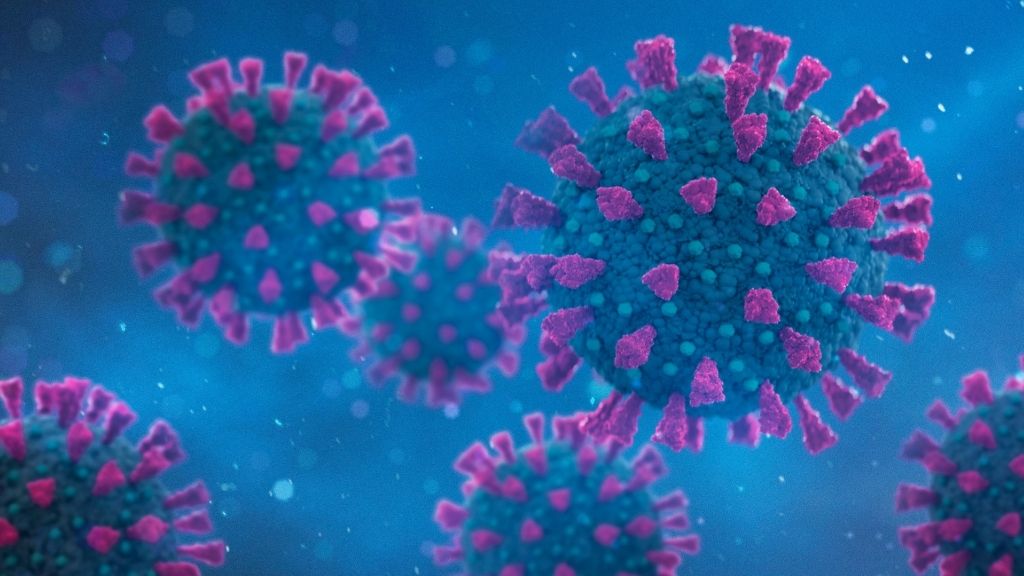China approves world-first inhaled COVID-19 vaccine
The vaccine will be used as a booster

Get the world’s most fascinating discoveries delivered straight to your inbox.
You are now subscribed
Your newsletter sign-up was successful
Want to add more newsletters?

Delivered Daily
Daily Newsletter
Sign up for the latest discoveries, groundbreaking research and fascinating breakthroughs that impact you and the wider world direct to your inbox.

Once a week
Life's Little Mysteries
Feed your curiosity with an exclusive mystery every week, solved with science and delivered direct to your inbox before it's seen anywhere else.

Once a week
How It Works
Sign up to our free science & technology newsletter for your weekly fix of fascinating articles, quick quizzes, amazing images, and more

Delivered daily
Space.com Newsletter
Breaking space news, the latest updates on rocket launches, skywatching events and more!

Once a month
Watch This Space
Sign up to our monthly entertainment newsletter to keep up with all our coverage of the latest sci-fi and space movies, tv shows, games and books.

Once a week
Night Sky This Week
Discover this week's must-see night sky events, moon phases, and stunning astrophotos. Sign up for our skywatching newsletter and explore the universe with us!
Join the club
Get full access to premium articles, exclusive features and a growing list of member rewards.
China has approved the world’s first inhaled COVID-19 vaccine, the vaccine maker CanSino Biologics (CanSinBIO) in Tianjin, China has announced.
The newly approved vaccine, named Convidecia Air, uses the same platform as the injectable COVID-19 vaccine by the same manufacturer — pieces of genetic material transported by a harmless adenovirus vector so the body can be trained against the virus. This vaccine, however, is inhaled through the mouth as a fine mist. China’s National Medical Products Administration has approved the vaccine for use as a booster.
The needle-free vaccine is the first approved of over 100 oral or nasal vaccines currently in development around the world, according to a World Health Organization (WHO) database. Scientists hope that administering vaccines through the nose or mouth could prepare the immune cells of the thin mucous membranes there, preventing the spread of even mild cases of the illness by killing the virus as it enters the body.
Related: 21 of the worst epidemics and pandemics in history
The self-administered dose "can effectively induce comprehensive immune protection in response to SARS-CoV-2 after just one breath," CanSinoBIO representatives said in a statement.
CanSinBIO already has an injected form of the same vaccine in use in China and approved in a few other countries. According to Phase III clinical trial published Dec. 23 in the journal The Lancet, the injected vaccine was 57.5% effective at preventing any COVID-19 symptoms and 91.7% effective at preventing severe disease after four weeks or longer following a single administered dose.
Another clinical trial, published Jul. 26 in The Lancet, showed the immunity levels produced by two inhalations of the vaccine 28 days apart reached the same as those produced by one intramuscular shot.
Get the world’s most fascinating discoveries delivered straight to your inbox.
The new inhalable format is reminiscent of nasally administered influenza vaccines, such as the intranasal FluMist vaccine. As vaccines of this type target the lungs and upper airways where viruses like influenza and COVID-19 enter the body, scientists think inhaled vaccines could be much more effective at stopping the spread of infections and require much lower doses to do the same job.
For instance, in a recent study of the Convidecia Air vaccine published on a preprint server without peer review, two Sinovac shots followed by a lower dose inhaled vaccine produced detecable levels of omicron neutralizing antibodies in 92.5% of cases, whereas a higher dose generated detectable antibodies in 88.9% of cases. The number for both groups, however, dropped to around 70% six months later.
Chinese regulators hope that the new delivery method will encourage more people to get vaccinated, but how impactful it will be in an already highly vaccinated population remains to be seen. China has distributed more than 3.4 billion vaccine doses to fully vaccinate 89.9% of its population already, compared to 68% of people in the United States.
Despite China's high vaccination rates, concern for China’s healthcare system, which does not have widespread capacity for sudden patient influxes, and a dropoff in efficacy of China’s vaccines over time has wedded the ruling Chinese Communist party (CCP) to developing easily-administered boosters alongside enforcing a strict zero-COVID policy.
More than 65 million people in China are currently in lockdown, according to the Chinese business media portal Caixin Global; this includes the 21 million people living in the central Chinese city of Chengdu, who were given stay-at-home orders on Thursday (Sept. 1) following the appearance of hundreds of local cases.
The latest lockdown restrictions precede the CCP’s Oct. 16 congress, where party leader Xi Jinping is expected to be reinstated as president for an unprecedented third term. Once the congress is over, it is unclear if the zero-COVID policy will be slowly dropped.
Originally published on Live Science.

Ben Turner is a U.K. based writer and editor at Live Science. He covers physics and astronomy, tech and climate change. He graduated from University College London with a degree in particle physics before training as a journalist. When he's not writing, Ben enjoys reading literature, playing the guitar and embarrassing himself with chess.
 Live Science Plus
Live Science Plus










